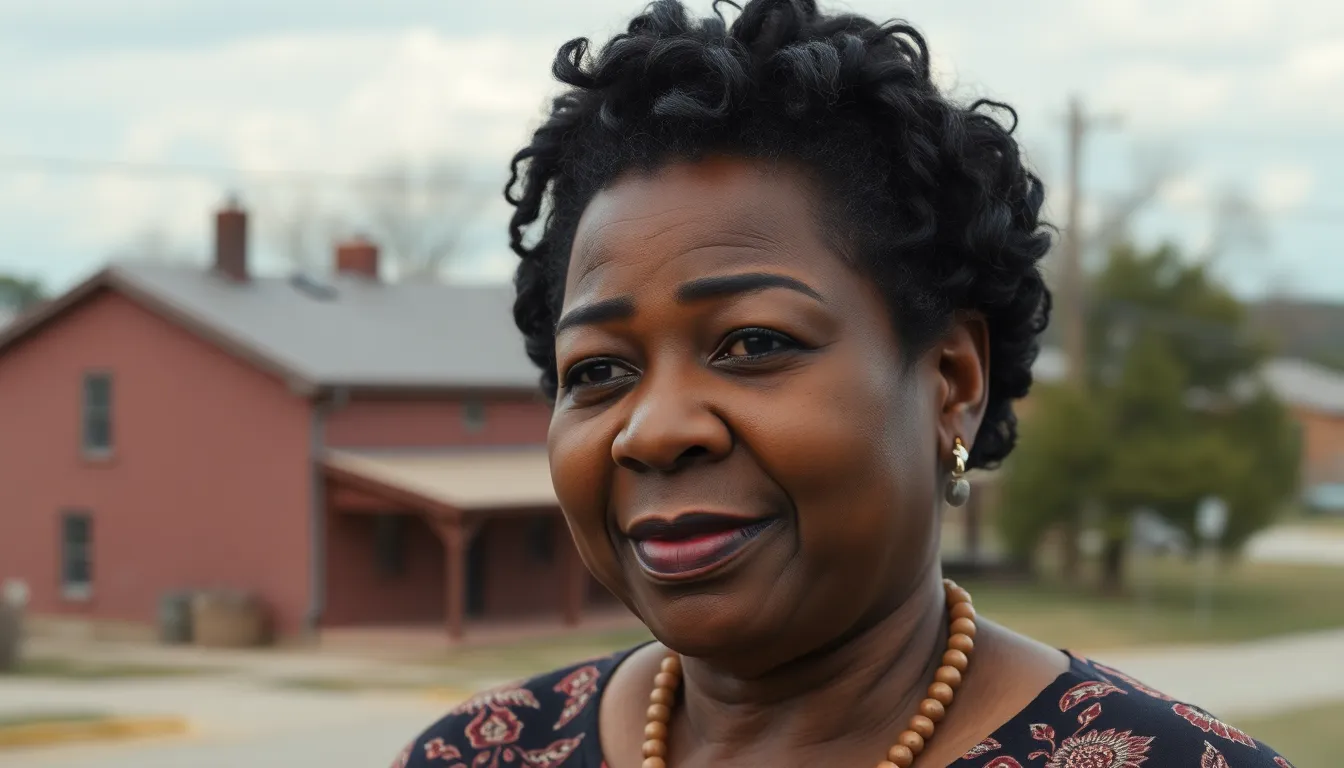Maya Angelou’s life was a tapestry of resilience, creativity, and inspiration. As a celebrated poet, memoirist, and civil rights activist, she broke barriers and left an indelible mark on literature and society. Her powerful words and captivating life story continue to resonate, inspiring countless individuals to find their voices and embrace their truths.
Exploring fun facts about Maya Angelou reveals the lesser-known aspects of her extraordinary journey. From her early struggles to her remarkable achievements, each detail unveils a layer of her vibrant personality and unwavering spirit. Whether it’s her unique experiences or her profound influence on culture, these intriguing tidbits showcase why she remains a beloved figure in history.
Table of Contents
ToggleFun Facts About Maya Angelou
- Birthplace and Early Life: Maya Angelou was born on April 4, 1928, in St. Louis, Missouri. Her childhood included challenges, including a traumatic experience that led to her mutism for nearly five years.
- Literary Breakthrough: Angelou published her first autobiography, “I Know Why the Caged Bird Sings,” in 1969. This work became a defining piece in literature, making her one of the first Black women to write a bestseller.
- Diverse Career: Angelou’s career spanned several fields. She worked as a singer, dancer, actress, and director, showcasing her versatility beyond writing.
- Civil Rights Activism: She worked alongside notable figures like Dr. Martin Luther King Jr. and Malcolm X in the 1960s, contributing her voice and talent to the civil rights movement.
- Honorary Degrees: Angelou received over 30 honorary degrees from various universities, reflecting her significant impact on arts and humanities education.
- Presidential Inauguration: In 1993, Angelou recited her poem “On the Pulse of Morning” at President Bill Clinton’s inauguration, becoming the first Black woman to present a poem at a presidential inauguration.
- Global Reach: Angelou traveled extensively, spending time in countries such as Egypt and Ghana. Her experiences abroad enriched her perspective and writing.
- Legacy in Arts: She received the Presidential Medal of Freedom in 2011, the highest civilian honor in the U.S., recognizing her contributions to literature and activism.
- Influence on Future Generations: Angelou’s words continue to inspire many. Quotations from her works are often cited in discussions about empowerment, resilience, and social justice.
- Lasting Impact: Maya Angelou passed away on May 28, 2014, but her legacy lives on through her inspiring messages, literature, and unwavering advocacy for equality.
Early Life and Education

Maya Angelou’s early life laid the foundation for her remarkable journey as a writer and activist. Born on April 4, 1928, in St. Louis, Missouri, she faced significant challenges that shaped her resilience and creativity.
Childhood Experiences
Maya endured a tumultuous childhood marked by trauma. At age three, her parents’ marriage ended, leading to her and her brother being sent to live with their paternal grandmother in Stamps, Arkansas. A traumatic sexual assault by her mother’s boyfriend at age seven led to her mutism for nearly five years. During this silence, she developed a love for literature, discovering authors like Shakespeare, Edgar Allan Poe, and Langston Hughes, which later influenced her writing style.
Influence of Family
Family played a crucial role in shaping Maya’s character and aspirations. Her grandmother, Annie Henderson, instilled strong values of faith and pride in her heritage. Additionally, her mother, Vivian Baxter, embodied independence and resilience, instilling a fierce spirit in Maya. This blend of influences fostered her determination to overcome adversity and pursue her passion for writing and advocacy, ultimately defining her legacy as an influential figure in American literature and civil rights.
Writing Career Highlights
Maya Angelou’s writing career spanned several decades, marked by her profound contributions to literature and the arts. Her voice resonated through her poetry, memoirs, and essays, capturing personal and societal experiences.
Notable Works
Angelou penned numerous influential works, with the following standing out:
- I Know Why the Caged Bird Sings (1969): This memoir chronicles Angelou’s early life, addressing themes of racism, trauma, and resilience. It became a significant literary milestone for Black women writers.
- Gather Together in My Name (1974): This sequel explores her teenage years and early adulthood, emphasizing her struggle for identity.
- Singin’ and Swingin’ and Gettin’ Merry Like Christmas (1976): This memoir details her experiences in the entertainment industry, showcasing her talent beyond writing.
- The Complete Collected Poems of Maya Angelou (1994): This anthology features a range of her powerful poems, emphasizing her mastery of language and emotion.
- Mom & Me & Mom (2013): This memoir offers insight into her relationship with her mother, showcasing themes of forgiveness and understanding.
Themes in Her Writing
Angelou’s works often explore recurring themes, including:
- Resilience: Her life experiences shape her writing, emphasizing strength in adversity.
- Identity and Race: She addresses her identity as a Black woman in America, confronting historical and contemporary issues of racism.
- Empowerment: Angelou’s narratives encourage self-discovery and assertiveness, resonating with women and marginalized communities.
- Love and Family: Her exploration of familial relationships highlights the complexities of love, often reflecting her own life experiences.
Through her impactful writing, Maya Angelou established a legacy that continues to inspire and empower individuals worldwide.
Activism and Advocacy
Maya Angelou’s commitment to activism and advocacy profoundly shaped her life and work. She dedicated herself to fighting for civil rights, women’s empowerment, and social justice.
Civil Rights Involvement
Maya Angelou played a pivotal role in the civil rights movement during the 1960s. She collaborated with leaders such as Dr. Martin Luther King Jr. and Malcolm X, advocating for equal rights and justice. Angelou served as the Northern Coordinator for the Southern Christian Leadership Conference (SCLC), contributing to significant efforts aimed at ending racial discrimination. Her experiences as a member of the civil rights movement inspired the themes found in her literary work, which often addressed injustice, resilience, and the quest for equality.
Women’s Empowerment
Maya Angelou championed women’s empowerment throughout her career. She highlighted the struggles and triumphs of women through her writing and public speeches. Angelou’s advocacy for women’s rights stemmed from her belief in the importance of self-acceptance and the power of voice in shaping personal narratives. She addressed issues such as sexism and domestic violence in her work, encouraging women to stand up for themselves and seek justice. Her influence continues to inspire countless women to embrace their strength and advocate for their rights in contemporary society.
Personal Life and Legacy
Maya Angelou’s personal life was as rich and multifaceted as her literary career. Her relationships and travels significantly influenced her work and legacy.
Relationships and Travels
Maya Angelou formed numerous essential relationships throughout her life. She maintained a close bond with her son, Guy Johnson, who served as an inspiration for her writings. Her friendships with influential figures, such as Dr. Martin Luther King Jr. and James Baldwin, showcased her dedication to civil rights. Angelou’s travels spanned across continents, allowing her to immerse herself in diverse cultures. She lived in several countries, including Egypt and Ghana, where she worked as a journalist and participated in the African liberation movement. These experiences enriched her perspectives and informed her writing, blending global themes with personal narratives.
Impact on Society
Maya Angelou’s impact on society extended beyond her literary achievements. Her work in the civil rights movement brought attention to racial and social issues, inspiring many to advocate for justice. Angelou’s poetry and prose often reflected struggles against oppression, resonating deeply with marginalized communities. Through her eloquent speeches, she championed women’s rights and empowerment, encouraging individuals to embrace their identities. Her legacy is evident in educational initiatives that incorporate her work, fostering discussions around resilience, equality, and the human spirit. Angelou’s influence continues to inspire activists and writers who seek to promote justice and understanding in contemporary society.
Maya Angelou’s life and work resonate deeply with those seeking inspiration and empowerment. Her journey from adversity to literary acclaim showcases her extraordinary resilience and creativity. The fun facts shared reveal not just her accomplishments but also the rich tapestry of experiences that shaped her voice.
Angelou’s legacy continues to influence countless individuals around the world. Her powerful words and unwavering commitment to justice remind us of the importance of advocating for equality and embracing one’s identity. As her quotes circulate in discussions on social justice and empowerment, it’s clear that her impact will endure for generations to come.







